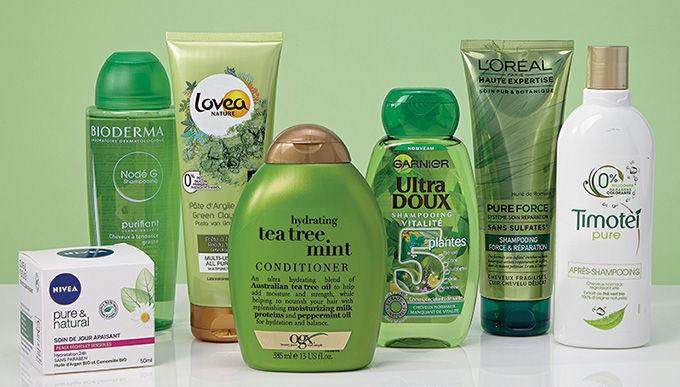By Lisa Benssousan,
In a world increasingly concerned about climate change and environmental degradation, the term “greenwashing” has become a buzzword. Companies often use this tactic to appear more environmentally friendly than they are. However, the European Union (EU) is taking a significant step to curb this misleading practice. A provisional agreement between the European Parliament and the Council aims to ban greenwashing and improve consumer information on product durability.
Greenwashing is a deceptive marketing strategy where a company exaggerates or falsely claims to be environmentally responsible. Often employed to capitalize on the growing demand for sustainable products, greenwashing misleads consumers into believing that a product or service is more eco-friendly than it is. This can range from using misleading labels and buzzwords like “natural,” “eco-friendly,” or “sustainable,” to more complex deceptions involving false certifications or manipulated data. The practice not only undermines genuine efforts toward sustainability but also hampers consumers’ ability to make informed choices, thereby diluting the impact of ethical consumption.
Next to greenwashing, clean beauty refers to skincare, makeup, and personal care products formulated with a focus on natural, organic, and non-toxic ingredients. The term “clean” implies that these products are free from harmful chemicals and synthetic additives. While the concept is gaining traction, it’s essential to note that the term “clean beauty” is not strictly regulated. Therefore, consumers must exercise caution and read labels carefully. Clean beauty aims to offer a safer alternative to traditional products, often laden with chemicals, by prioritizing both human health and environmental sustainability.

The EU’s approach is comprehensive, serving as an update to the existing list of banned commercial practices. The new provisions are specifically aimed at curbing greenwashing and addressing the early obsolescence of goods. Companies will soon find themselves unable to use vague or generic environmental claims like “eco-friendly,” “natural,” or “biodegradable” unless they can substantiate these claims with recognized environmental performance metrics. This is a crucial move to ensure that any claim made about a product’s environmental impact is both transparent and verifiable.
This focus on transparency extends to the durability of products as well. Companies will be required to disclose any design features that intentionally limit a product’s lifespan. This is a significant step toward combating the planned obsolescence that has become all too common in various industries. Adding another layer of consumer protection, the EU is also tightening regulations around sustainability labels. From now on, these labels must be based on approved certification schemes or be established by public authorities.
This ensures that consumers can trust the sustainability labels they encounter, knowing that these labels meet a certain standard and are not merely marketing gimmicks. These new regulations are more than just rules; they are a significant milestone in consumer protection. Misleading advertisements not only deceive consumers but also make it difficult for them to make informed choices. For example, a product labeled as “eco-friendly” may attract a consumer willing to pay a premium for sustainability. If that claim turns out to be false, the consumer is not only misled but also deprived of the opportunity to contribute to environmental conservation.

greenwashing in European agriculture, on May 26, 2021,
Image source: AFP/ARCHIVES – KENZO TRIBOUILLARD
Moreover, greenwashing dilutes the impact of genuine sustainability efforts. When companies make false environmental claims, they divert attention and resources away from products and services that are genuinely sustainable. By banning such practices, the EU is reinforcing the importance of authentic sustainability initiatives. The forthcoming regulations will also create a more transparent market where consumers can make informed choices. Transparency is essential for the functioning of a free market, and these new rules will level the playing field for companies genuinely committed to sustainability.
Ethical consumption is on the rise, and these new rules come at a time when consumers are increasingly considering the social and environmental impact of their purchases. The regulations will make it easier for consumers to align their spending with their values, thereby promoting ethical business practices. It’s worth noting that the provisional agreement is not yet law; it needs final approval from both the European Parliament and the Council. Once ratified, member states will have 24 months to incorporate these new rules into their national laws, giving companies ample time to adjust their marketing strategies and comply with the new regulations. In conclusion, the EU’s forthcoming regulations against greenwashing are a significant step towards a more sustainable and transparent market.
They aim to protect consumers from misleading practices and help them make better purchasing decisions. While the rules are yet to be ratified, their adoption will undoubtedly have a far-reaching impact on consumer protection and environmental sustainability. As consumers become more aware and concerned about the state of the planet, these regulations offer a robust framework for promoting genuine sustainability efforts and ethical consumption.
References
- “EU to ban greenwashing and improve consumer information on product durability”,
European Parliament. Available here - “Greenwashing : l’UE veut faire le grand ménage sur les étiquettes”, AFP et Sciences
et avenir. Available here




